More than 4,000 Canuck soldiers were killed, nearly 12,000 wounded taking town from Germans
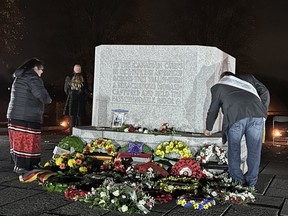
Article content
PASSCHENDAELE, Belgium – More than 1,000 people gathered at the Canadian Memorial in Crest Farm on Sunday night to honour the sacrifice made by Canadians to secure their freedom.
Advertisement 2
Article content
And then the crowd of mostly local residents lit torches and held them high as they walked the final steps our soldiers took in capturing this small town from the Germans exactly 107 years ago.
The Battle of Passchendaele is one of the bloodiest military actions in Canada’s history and the Belgians are forever grateful.
“It’s an incredible ceremony and a tribute to the Canadian effort, our costliest battle as a nation,” Corinne MacClellan, an honorary colonel in the Halifax Rifles, told the Toronto Sun on Sunday.
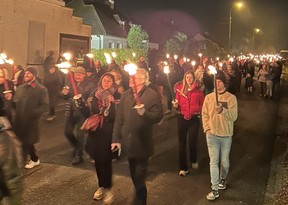
“It has never been forgotten by the people of Passchaendale and, more broadly, the people of Belgium, but also Canadians,” said the co-chair of a delegation of Indigenous representatives and family members of First World War soldiers visiting Flanders Fields. “Passchaendale is a word that resonates very deeply in our DNA as Canadians.”
Advertisement 3
Article content
“It’s just a privilege to experience it and it’s something I wish that every Canadian had the opportunity to do. It’s very weighty, but at the same time there’s a different level of pride that is attached to this ceremony.”
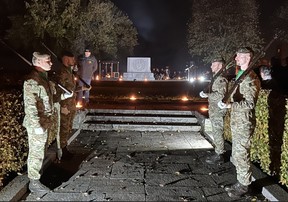
More than 4,000 Canadian soldiers were killed and nearly 12,000 wounded between Oct. 26, 1917, and the time they finally took the heavily fortified high ground – Crest Farm – from the Germans on Nov. 10, 1917.
In the years that followed the end of the Great War in 1918, a monument was erected at the site of Crest Farm to commemorate the Canadian capture of the ridge. The monument is a large block of Canadian granite, in a grove of maple trees, with the inscription: “The Canadian Corps in Oct-Nov 1917 advanced across this valley – then a treacherous morass – captured and held the Passchendaele ridge.”
Article content
Advertisement 4
Article content
Every year on the evening of the anniversary – since 2005 – a huge crowd gathers for a ceremony at the monument, which is encircled in flames, as pipers and buglers play, O Canada is sung, wreaths are laid, stories are told by relatives of soldiers who fought in the battle, and dignitaries speak.
Recommended from Editorial
“The Battle of Passchendaele is forever etched in the history of Canada, of Belgium and of the world,” Nicholas Brousseau, Canada’s ambassador to Belgium, said during Sunday’s ceremony.
“Tonight, as we stand here in this sacred place, we do not simply remember a military engagement – we remember the lives of those who fought, the pain and suffering they endured, and the indelible mark they left on the course of history.
Advertisement 5
Article content
“We remember the human cost of war and we honour the legacy of those who sacrificed everything for a cause greater than themselves.
“The Canadian soldiers who fought at Passchendaele did not fight for glory. They fought for our freedom, for peace and for their comrades beside them.”
He also said Indigenous soldiers “who also answered the call to serve” must not be forgotten.
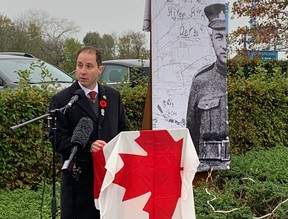
Brousseau pointed out that men like Pte. Alex Decoteau, a cree man originally from Saskatchewan who had a monument unveiled in his honour earlier this week, and Sgt. Sam Glode from Nova Scotia, whose great-great-grandson shared his story of heroism during Sunday’s memorial, “volunteered to fight for a country that did not fully recognize them.
Advertisement 6
Article content
“Today, we honour their service and sacrifice as an essential part of Canada’s history,” he said.
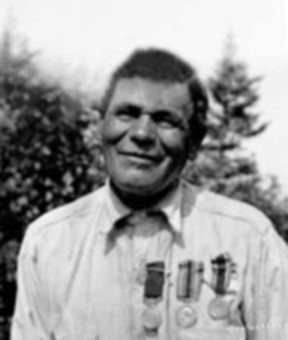
Brousseau said Passchendaele is also “a symbol of Canada’s coming-of-age as a nation.”
“The soldiers who fought here in the mud and blood were not just defending their country,” he said. “They were shaping the future of the nation they would leave behind.
“Tonight we hold the torch high, as John McCrae’s famous poem reminds us, and say to them and to all soldiers who fought in this battle, ‘We will never forget you.’”
RECOMMENDED VIDEO
Following the ceremony, torches are lit and handed out for the torchlight procession that sees the crowd light up the night as the walk into the village square along Canadalaan – a road lined with homes flying Canadian flags out front.
Advertisement 7
Article content
At the start of the procession, the crowd marches past Canada Gate – an iron arch erected as a companion piece to a similar installation known as The Last Steps on the Halifax waterfront.
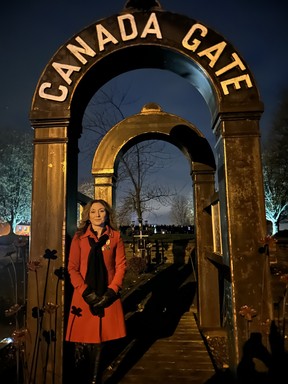
In Halifax, soldiers’ bootprints can be seen leading up a gangway and ending at the opening of the arch, symbolizing the final steps of the 450,000 Canadians who shipped off to war on the Western Front – more than 66,000 of whom never returned home with about 30,000 laying down their lives in Belgium.
The bootprints re-emerge at the Canada Gate in Passchendaele heading toward the church in the village square.
MacLellan said she wondered how Belgians would feel about the monument when she and Flanders Fields guide Erwin Ureel worked together to make the Canada Gate a reality in 2017.
Advertisement 8
Article content
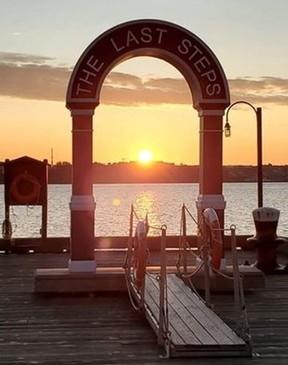
But she knew the deep meaning behind the Canadian Gate had been taken to heart by locals when a busload of Belgian soldiers turned up on the day of the unveiling.
“They all lined up, single file, and walked through it, which was so special to me as the co-chair of the project,” she said. “It was profound.”
“Later, there was a Second World War veteran who was in his 90s and needed the assistance of his daughter to get around,” MacLellan said, becoming emotional as she recalled the story. “He wanted to walk through the Canada Gate and he refused to accept any help. He had to walk through it on his own steam.”
She said the locals never fail to show up to pay tribute to Canadian troops and the soldiers of other countries that liberated Belgium from the Germans.
“It’s because they live with our history around them,” MacLellan said. “It’s around their schools, it’s around their communities – it happened here.”
– The Toronto Sun’s Chris Doucette, a veteran of the Canadian Armed Forces who served in the Royal Canadian Regiment, is in Belgium and will be visiting memorial sites and attending ceremonies leading up to Remembrance Day.
Article content
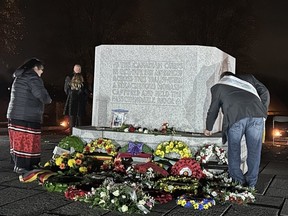




Comments